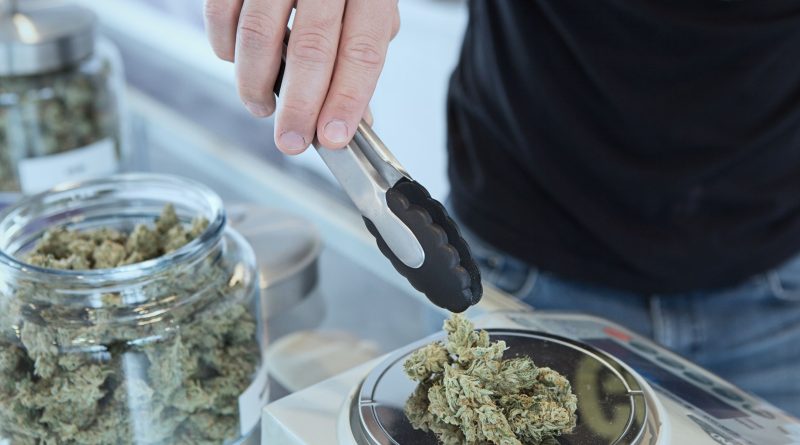Top Virginia Senator Wants To Legalize Marijuana Sales To Offset Trump’s Federal Spending Cuts
From toxifillers.com with love
A top Democratic Virginia senator says the state should move forward with legalizing recreational marijuana sales—in part to offset the Trump administration’s cuts to federal spending in support of states.
While the legislature has twice passed bills to create a regulated commercial cannabis market after the state legalized possession and use by adults in 2022, Gov. Glenn Youngkin (R) vetoed both proposals.
But with anticipated increases in spending in Virginia resulting from various federal policy initiatives such as the withdrawal of federal welfare dollars to states, Senate President Pro Tem Louise Lucas (D) said it’s time to get serious about alternative revenue, which should include legalizing marijuana sales.
“We have an inescapable responsibility to generate and create a long-term and sustainable source of revenue to safeguard core programs and services,” Lucas told Virginia Public Radio.
Del. Paul Krizek (D), chair of a joint commission tasked with studying and making recommendations on creating a cannabis market, said lawmakers’ “top priority is making sure that we’re not setting people up to fail and that we’re that we have good strict oversight mechanisms, and there’s phased expansion.”
“But we’ll get it going as soon as judiciously possible,” he said.
Krizek’s panel held its second meeting last week, with members taking input on tax and revenue options for cannabis sales.
That came almost two months after the commission first convened, as members discussed broad regulatory considerations and other issues related to THC potency, the hemp market and more.
Use and possession of marijuana has been legal in Virginia since 2022, but retail sales remain forbidden—a situation that’s helped fuel a multibillion-dollar illicit market. Despite efforts by Democrats in past years to legalize and regulate the retail system, Youngkin has stood in the way of the reform, vetoing proposals passed by lawmakers during each of the last two sessions.
Youngkin, however, is term-limited and unable to run for re-election in November. The governor’s replacement is likely to decide whether regulated products will become available in the commonwealth in the next few years.
The governor has also opposed more incremental reforms. In May, for example, he vetoed a bill that would have allowed deliveries of medical marijuana directly to patients at locations other than their own homes. It would have also updated product labeling requirements so packaging would more clearly indicate THC and CBD levels.
In March, after the legislature passed the legislation, Youngkin recommended an amendment that would remove language to allow marijuana to be delivered to places other than a patient’s private residence. Lawmakers later declined to make that change, however, and sent the unamended bill back to the governor.
—
Marijuana Moment is tracking hundreds of cannabis, psychedelics and drug policy bills in state legislatures and Congress this year. Patreon supporters pledging at least $25/month get access to our interactive maps, charts and hearing calendar so they don’t miss any developments.![]()
Learn more about our marijuana bill tracker and become a supporter on Patreon to get access.
—
Youngkin in March also vetoed a host of other drug reform proposals passed by lawmakers, including the legal sales bill and another to authorize the prescription of a synthetic form of psilocybin as soon as the federal government authorizes its use.
Beyond the legal sales and psilocybin bills, the governor also rejected a number of other cannabis-related reforms this session, including efforts to resentence people serving time for cannabis offenses and protect the parental rights of those who legally use the drug.
Youngkin agued in a veto statement that legalizing sales of adult-use marijuana “endangers Virginians’ health and safety.”
“States following this path have seen adverse effects on children’s and adolescents’ health and safety, increased gang activity and violent crime, significant deterioration in mental health, decreased road safety, and significant costs associated with retail marijuana that far exceed tax revenue,” the governor claimed. “It also does not eliminate the illegal black-market sale of cannabis, nor guarantee product safety.”
Even before the start of the current legislative session, Youngkin’s office had signaled it had no interest in the reform.
Asked by Virginia Public Media (VPM) late last year about the likelihood of a veto, Christian Martinez, a spokesperson for the Youngkin, told the outlet: “I think you can cite the fact that time and time again he has been very clear on that.”
Reform advocates are already watching to see where his possible replacements stand on legalization and other cannabis policy changes.
The two major party nominees for the position—Republican Lt. Gov. Winsome Earle-Sears and Democratic former U.S. Rep. Abigail Spanberger—have starkly different views on the reform.
Earle-Sears recently echoed Youngkin’s views, saying of legalization: “There’s no hope in that.”
She’s also said marijuana is a gateway drug and that she fired a previous employee for using it.
Spanberger, meanwhile, voiced support for a regulated retail market.
“We need a formalized, legal, emerging cannabis market,” she said. “We also need to make sure that [tax] revenues flow into Virginia and are used to strengthen our communities and public schools.”
In a new statement to Virginia Public Radio, she said a future sales law should be crafted so that it “prioritizes public safety and grows the Virginia economy.”


